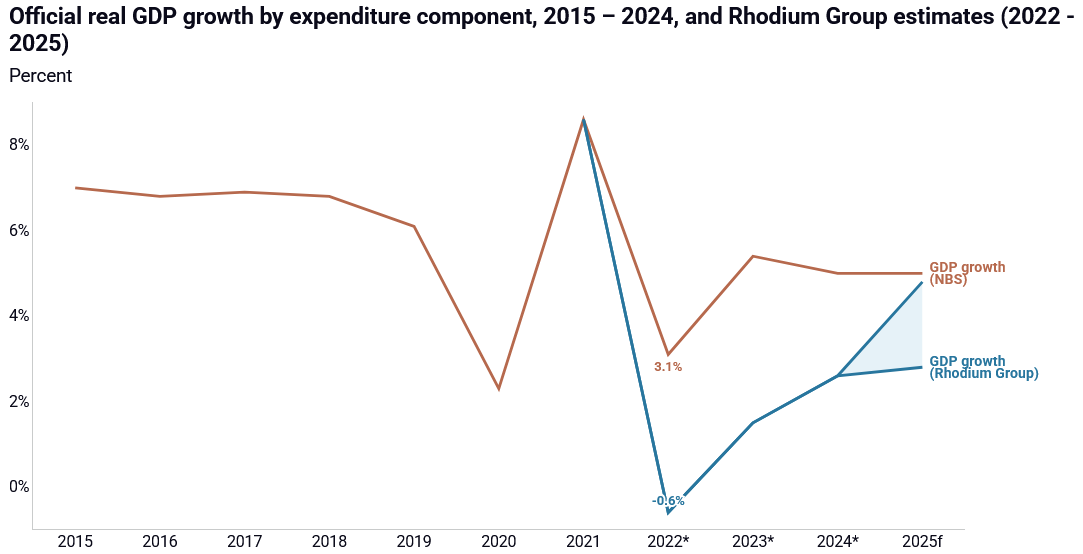China's broken abacus, institutional quality, and strategic competition
Plus, the NDS and the fear of abandonment
Logan Wright of the Rhodium Group has a piece on The Strategic Logic of China's Economic Data. It updates the 2015 Broken Abacus report with CSIS on the many problems with China's economic growth data. As the accompanying chart shows, Rhodium views China's official growth figures as over-stated:
Wright argues that China’s overstatement of economic growth plays an important role in managing its strategic competition with the United States. The official narrative of China's unstoppable rise is intended to obscure the fact that China has 'no plausible path to global economic primacy.' That narrative is designed as much for external as for internal consumption:
If China is perceived as a fading economic force, corporate decisions to shift investments and capabilities elsewhere could accelerate China’s economic downturn, a vicious cycle for Beijing.
That shift is already happening, with net FDI flows into China at record lows in 2024.
But as Wright notes, the United States is squandering an important strategic asset in its competition with China: the credibility of its economic institutions. The firing of the BLS Commissioner following a weak non-farm payrolls report alongside Trump’s attacks on Fed independence are severe blows to US economic credibility. This is a gift to Beijing:
Over the last three years, Beijing has struggled to push back against the global perception that China’s economy has stalled since zero-COVID restrictions and the collapse of the property sector, while the US economy powered ahead, recovering from the pandemic more rapidly than any other member of the G7. Weakening the credibility of the US data that support that narrative is a strategic mistake with implications for US national security, well beyond esoteric arguments about the accuracy of statistics. If Beijing can credibly argue to global investors and policymakers that the US agrees that its own statistics are politicized, it helps China to maintain the narrative of its own inevitable rise, while also pushing back against global derisking or decoupling from China.

